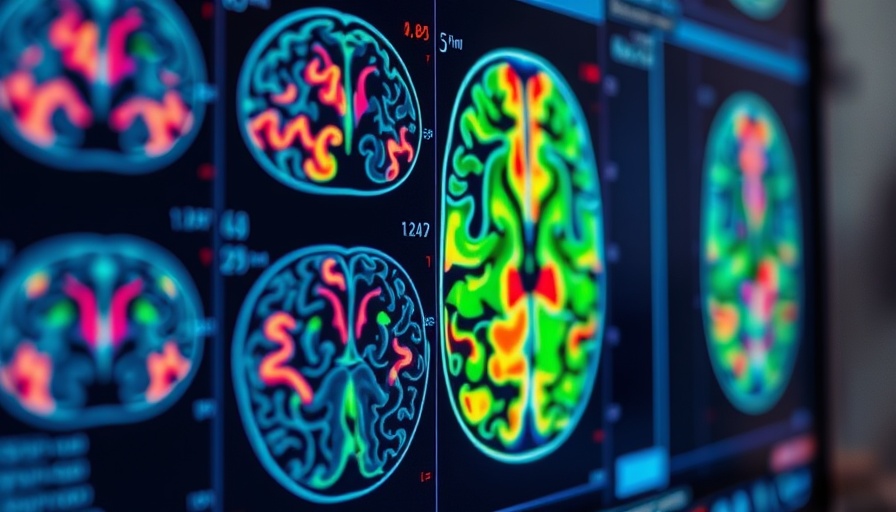
Could Lithium Deficiency Spearhead Alzheimer’s Progression?
A newly published study from Harvard Medical School shines a light on the potential consequences of lithium deficiency, suggesting that insufficient levels of this essential trace metal in the brain could be an early trigger for Alzheimer's disease. The research, which spans over a decade of examinations and experiments, indicates that not only is lithium vital for normal brain function, but its depletion could lead to significant cognitive decline in both mice and humans.
Understanding Lithium: An Essential Trace Metal
Lithium is often associated with treatments for mood disorders, but its role in cognitive health is now drawing attention. Researchers found that lithium behaves similarly to other trace metals like iron and zinc, which are known contributors to healthy brain function. For residents of Muskegon and caregivers, these findings underscore the need for enriched environments that support the intake of such essential nutrients, possibly through water supply or dietary changes.
Research Discoveries: From Mice Models to Human Implications
The research team’s experiments involved analyzing human brain tissue alongside studies conducted in mice, revealing that a reduction in lithium might lead to the aggregation of beta-amyloid plaques—often regarded as a hallmark of Alzheimer’s disease. This binding and depletion process not only appears to contribute to the disease's cognitive impairments but also indicates a potential nutritional approach to Alzheimer’s prevention.
Hope for New Therapeutic Approaches
What makes this study particularly riveting is how it paves the way for innovative treatment strategies. Researchers discovered that administering lithium orotate, a type of lithium compound, could reverse symptoms associated with Alzheimer’s in mice. Such findings may transition into future therapies for humans, sparking discussions about including lithium-rich supplements or foods in the diets of older adults, especially those at risk for Alzheimer's.
The Link between Environment and Cognitive Health
The study posits that mild trace amounts of lithium present in municipal water supplies could serve as nutritional support against dementia. For seniors in Muskegon, this insight opens up broader conversations about which local health services incorporate environmental health assessments into their planning. It is crucial for communities, health organizations, and dementia assistance centers in Muskegon to consider these environmental factors when crafting support initiatives.
Practical Takeaways for Caregivers
Families and caregivers of the elderly must stay informed about this research as it introduces a fresh perspective on dementia care. Practical approaches may include assessing lithium levels through dietary planning, considering supplements, or enhancing community resources that promote the consumption of foods rich in lithium-like nuts and vegetables. As someone involved in caring for seniors, educating yourself about existing support services can create a robust safety net for those who might be affected by Alzheimer’s.
It is essential for Muskegon caregivers to explore various avenues of care, such as senior care solutions in Muskegon or cognitive care facilities, to ensure effective assistance for loved ones facing cognitive challenges. In addition to exploring new dietary considerations, caregivers should also engage in open conversations about how prevailing health service plans impact their loved ones.
Charting a Future with Alzheimer’s: Community and Awareness
As evidence mounts on the role of lithium in cognitive health, it becomes more apparent that communities need to rally together in support of research on Alzheimer’s and dementia. The initiative begins at the grassroots level—fostering awareness, integrating new health insights into community planning, and advocating for research funding. This focus could lead to further breakthroughs in Alzheimer’s care strategies and better services in Muskegon.
As the landscape of Alzheimer’s research continues to evolve, it prompts a crucial inquiry: How can families within Muskegon better support their elderly loved ones experiencing early signs of cognitive decline? Engaging in mental health discussions and reaching out to providers like Terrijo Parker at 231-571-6100 can open doors to tailored solutions that will benefit both caregivers and patients in the long-term.
 Add Row
Add Row  Add
Add 




Write A Comment